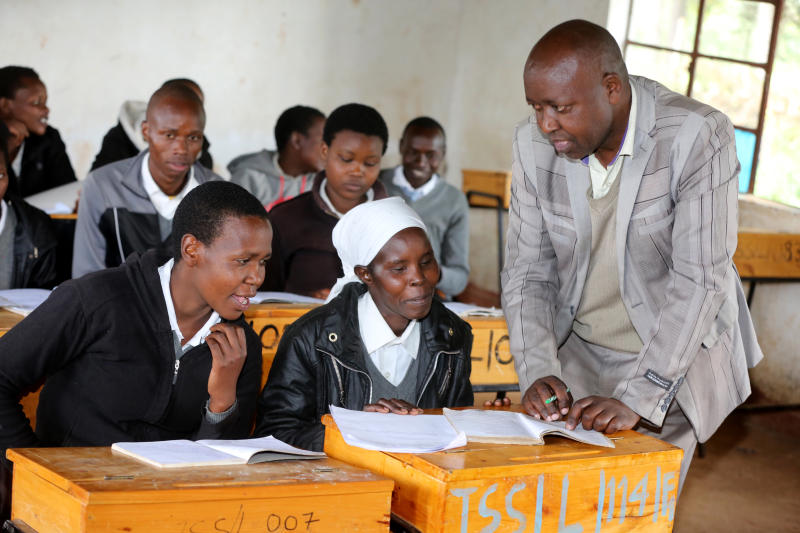×
The Standard e-Paper
Home To Bold Columnists

Naomi Chepkemoi, 30, sits on the front row in a Form Three class at Telwet Secondary School in Kuresoi South. Next to her is 22-year-old Fancy Chebwogen. The two listen keenly as their Chemistry teacher explains different concepts.
Just like their colleagues, they are donning grey sweaters, marching skirts, and white tops.